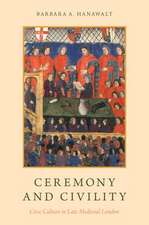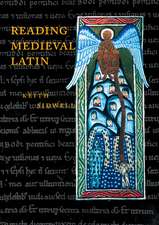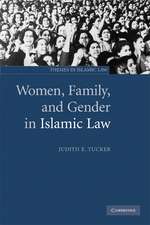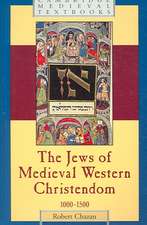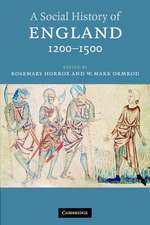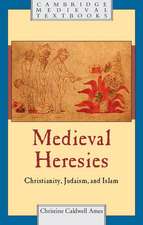The Formation of Islam: Religion and Society in the Near East, 600–1800: Themes in Islamic History, cartea 2
Autor Jonathan P. Berkeyen Limba Engleză Paperback – 22 dec 2002
| Toate formatele și edițiile | Preț | Express |
|---|---|---|
| Paperback (1) | 281.28 lei 6-8 săpt. | |
| Cambridge University Press – 22 dec 2002 | 281.28 lei 6-8 săpt. | |
| Hardback (1) | 775.27 lei 6-8 săpt. | |
| Cambridge University Press – 10 dec 2002 | 775.27 lei 6-8 săpt. |
Preț: 281.28 lei
Nou
53.84€ • 58.50$ • 45.25£
Carte tipărită la comandă
Livrare economică 22 aprilie-06 mai
Specificații
ISBN-10: 0521588138
Pagini: 301
Ilustrații: 3 maps
Dimensiuni: 153 x 229 x 20 mm
Greutate: 0.45 kg
Ediția:New.
Editura: Cambridge University Press
Colecția Cambridge University Press
Seria Themes in Islamic History
Locul publicării:Cambridge, United Kingdom
Cuprins
Recenzii
'The Formation of Islam makes a significant contribution to what it is hoped will become a prominent strand in Islamicate historiography … the book lucidly charts the incremental formation of the Islamicate state-society complex … an incisive and textured account of the ebb and flow of Islamicate civilisation.' The Muslim World Book Review
'… a fascinating, complex and dynamic plot, that is both chronological and thematic. The narrative is packed with information and interpretations, sometimes conflicting interpretations that challenge the traditional story, or criticize the theory of a particular historical school. But, condensed as it is, Berkey enlivens it with anecdotes, verses of poetry, quotations of hadith or particular scences of medieval life.' Jerusalem Studies in Arabic and Islam
Descriere
Jonathan Berkey's 2003 book surveys the religious history of the peoples of the Near East from roughly 600 to 1800 CE. The opening chapter examines the religious scene in the Near East in late antiquity, and the religious traditions which preceded Islam. Subsequent chapters investigate Islam's first century and the beginnings of its own traditions, the 'classical' period from the accession of the Abbasids to the rise of the Buyid amirs, and thereafter the emergence of new forms of Islam in the middle period.
Throughout, close attention is paid to the experiences of Jews and Christians, as well as Muslims. The book stresses that Islam did not appear all at once, but emerged slowly, as part of a prolonged process whereby it was differentiated from other religious traditions and, indeed, that much that we take as characteristic of Islam is in fact the product of the medieval period.








